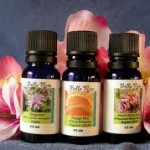Boarding
There is always one very important rule to remember when you are considering putting your dog a boarding establishment: LOOK BEFORE YOUR BOOK. If you don’t like what you see, don’t expect that it will improve by the time your dog arrives. All boarding establishments for animals must be licensed by the local authority, but having a licence is not an indication of quality. The standards laid down by each individual authority are always minimum standards, and as long as the kennels adhere to the minimum, they are granted a licence. Unfortunately, in many cased, the minimum is not fit to keep any animal in, let alone a dog that has probably spent all of its previous existence having its every whim being pandered to in the comfort of a modern home. There is boarding kennels near my home, and over the years I have beard so many detrimental comments from dogs and cat owners about the place that I contacted the local authority and and asked them why they continued to grant a licence.
A Dog Is A Dog Is A Wolf
The answer to ‘why does my dog….?’ is usually very easily answered — ‘because it’s a dog.’ Much of what we regard as problem behaviour is quite often, as I explained in the Introduction, just normal dog behaviour exhibited in the wrong place and at the wrong time.
My dog has just bitten somebody! Well, Dogs bite, don’t they? My dog barks constantly! Well, dogs bark, don’t they? My dog growls at me if I go near his food! Well, dogs growl, don’t they? They also guard food.
All these behaviours, although totally unacceptable, are the thins dogs do. If you persist in being aggressive towards your do, the chances are that at some point it will become annoyed enough to bite you. What else can it do—send you a solicitor’s letter?
Basic Essential Oil Chemistry
 The thought of organic chemistry can be daunting, but some knowledge of the basic chemical groups of which essential oils are composed is necessary in order to understand which oils are safe and gentle, and which are stronger or irritating. Since the chemistry of essential oils is a more advanced topic, I am keeping this as simple as possible. Further reading on the subject can be found in the books of Kurt Schnaubelt and Marcel Lavabre. Every essential oil is represented by dominant chemical groups that determine its effects.
The thought of organic chemistry can be daunting, but some knowledge of the basic chemical groups of which essential oils are composed is necessary in order to understand which oils are safe and gentle, and which are stronger or irritating. Since the chemistry of essential oils is a more advanced topic, I am keeping this as simple as possible. Further reading on the subject can be found in the books of Kurt Schnaubelt and Marcel Lavabre. Every essential oil is represented by dominant chemical groups that determine its effects.




